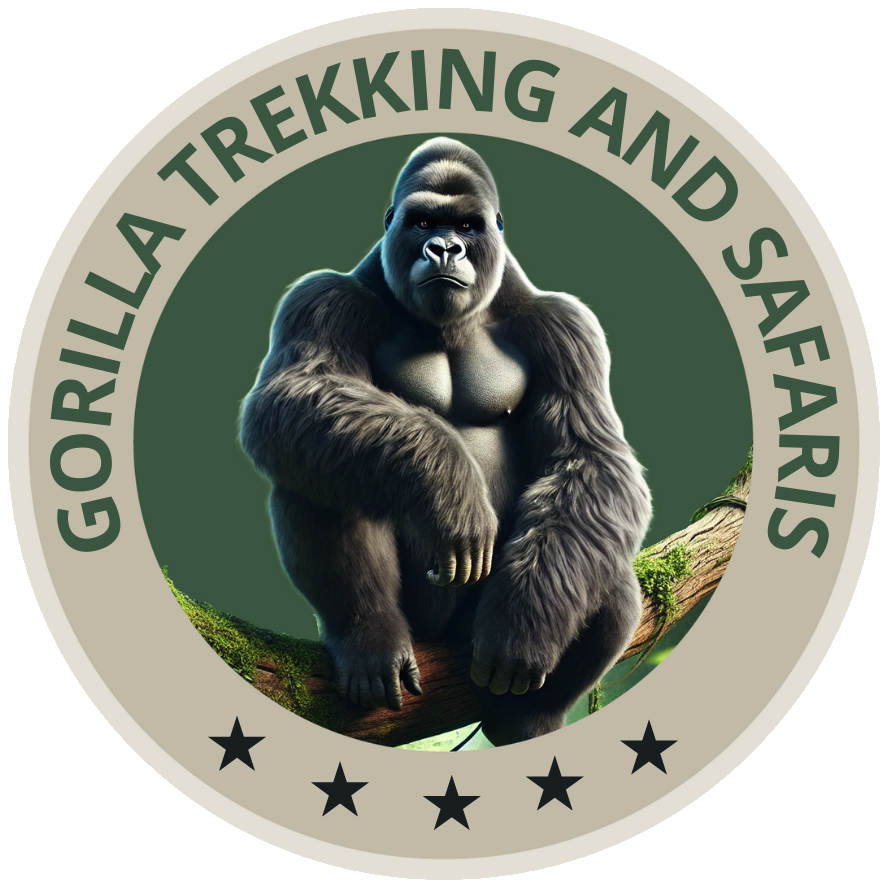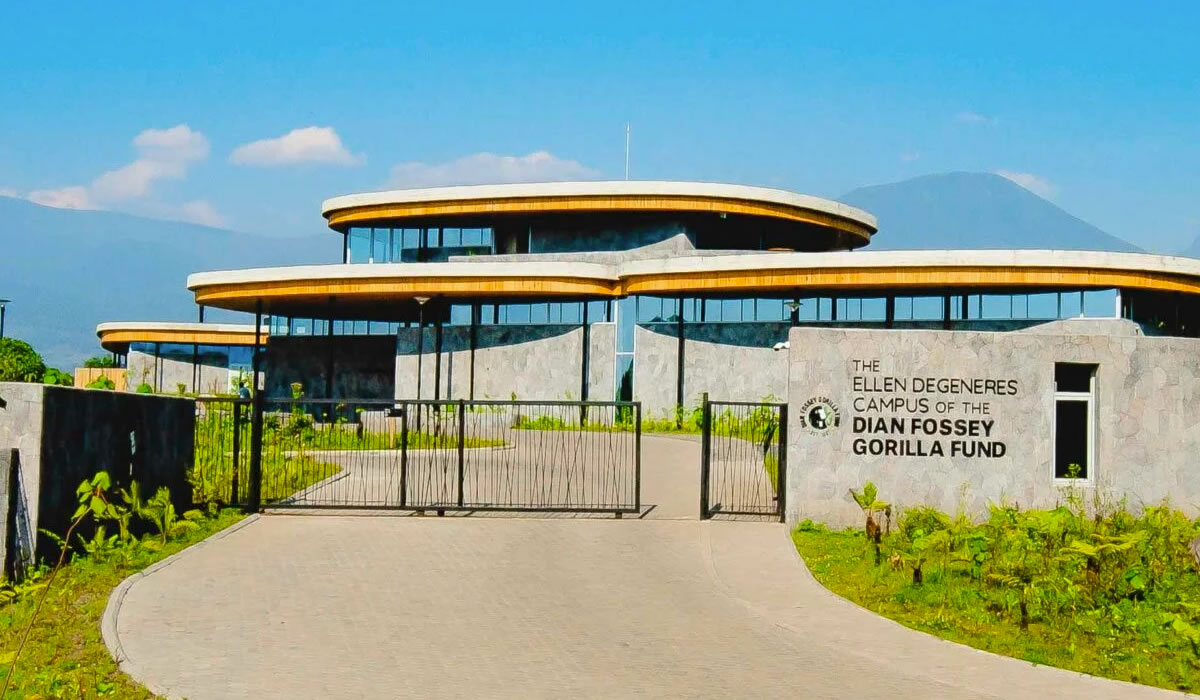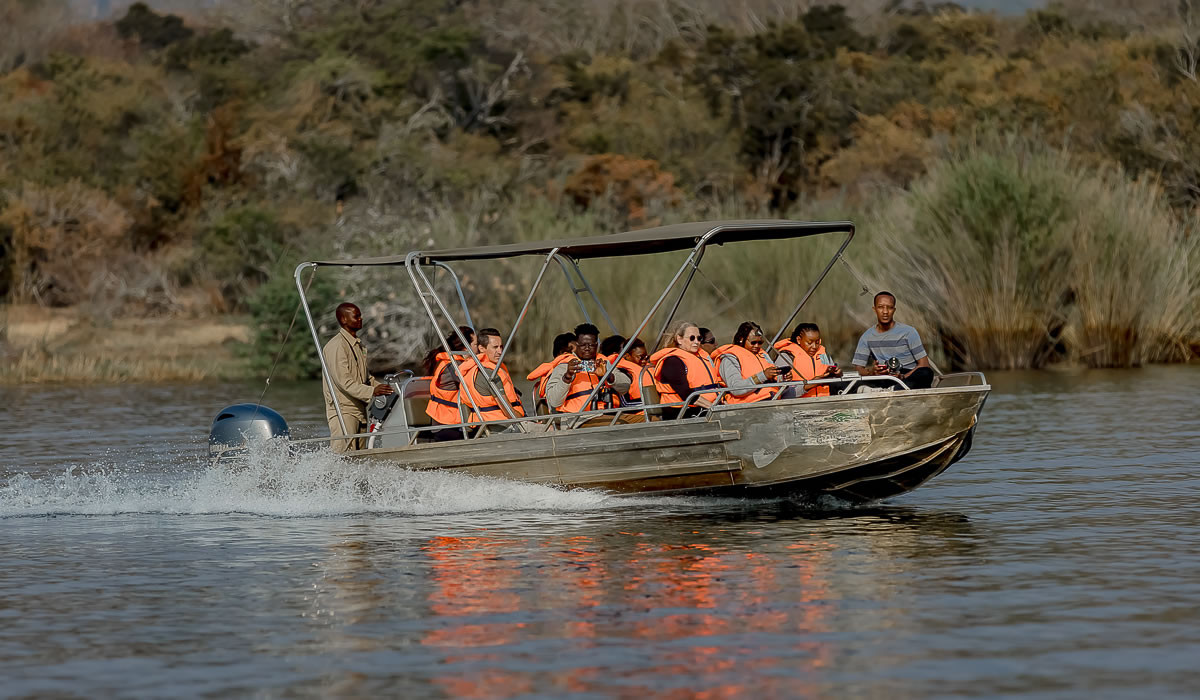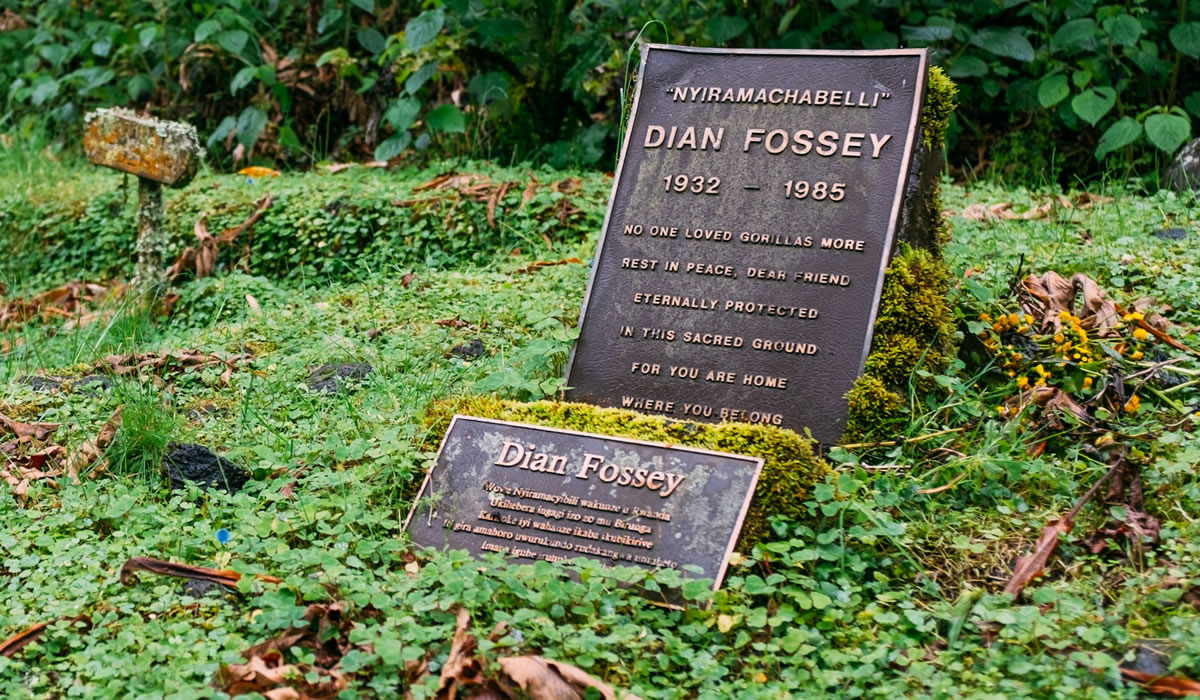In the heart of Rwanda’s verdant landscape, at the edge of the renowned Volcanoes National…
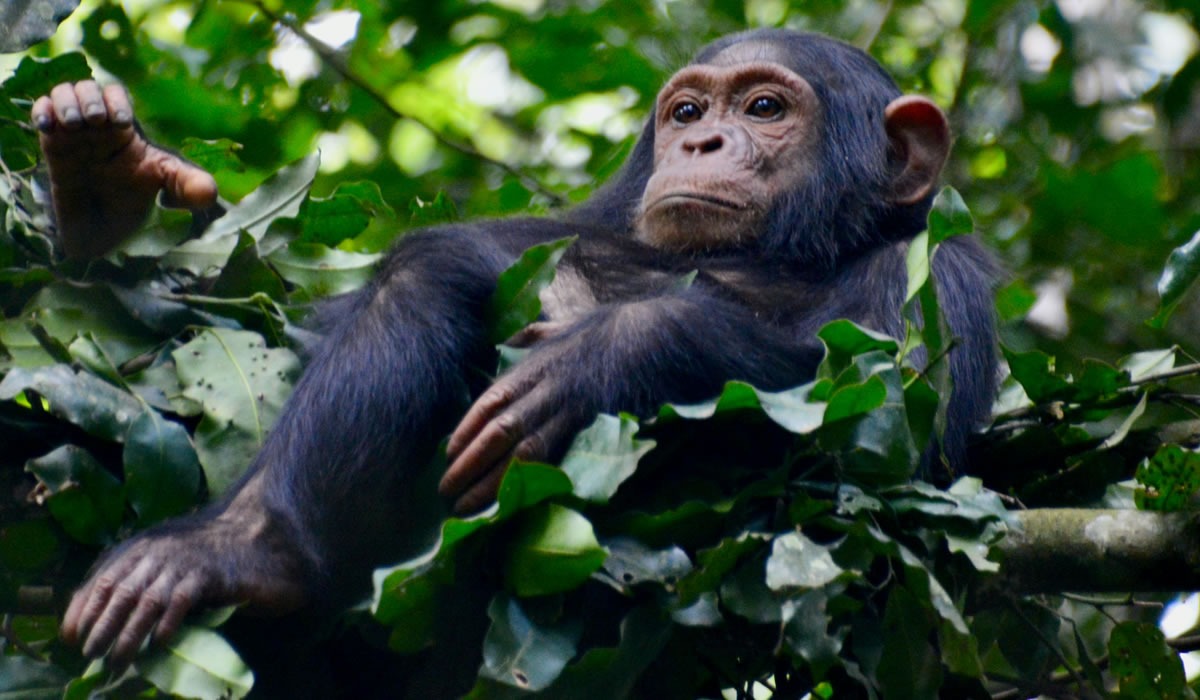
Chimpanzee Tracking in Nyungwe Forest National Park
Nyungwe Forest National Park, located in the southwestern region of Rwanda, is a pristine and biodiverse haven that is home to a variety of wildlife, including the famous chimpanzees. Spanning over 1,000 square kilometers, Nyungwe is not only a UNESCO World Heritage site but also one of Africa’s most biodiverse forests, making it an ideal destination for nature lovers and wildlife enthusiasts. Among the many attractions of the park, chimpanzee tracking stands out as one of the most rewarding and exciting experiences.
Chimpanzee tracking in Nyungwe Forest allows visitors to embark on a thrilling journey through the dense forest, following in the footsteps of our closest relatives in the animal kingdom. This activity offers the chance to observe chimpanzees in their natural habitat, learn about their behaviors, and appreciate the crucial conservation efforts to protect these incredible primates. In this article, we will explore everything you need to know about chimpanzee tracking in Nyungwe Forest National Park, including the best time to visit, how to prepare, and what you can expect during the trek.
Nyungwe Forest National Park
Nyungwe Forest is situated on the edge of the Albertine Rift, a region known for its rich biodiversity. It is one of the largest montane rainforests in Africa, with an estimated 1,060 plant species, over 300 bird species, and 75 mammal species, including the chimpanzee. The forest’s dense canopy, lush vegetation, and varied terrain provide an ideal environment for chimpanzees, who spend much of their time in the trees but also forage on the ground.
Chimpanzees, scientifically known as Pan troglodytes, are highly intelligent primates closely related to humans. They are known for their complex social structures, use of tools, and communication through vocalizations, gestures, and facial expressions. The population of chimpanzees in Nyungwe Forest is one of the most well-studied in Rwanda, and the park’s efforts to protect and conserve them have contributed significantly to the preservation of the species.
The Experience of Chimpanzee Tracking
Chimpanzee tracking in Nyungwe Forest is a guided activity that offers visitors a unique opportunity to witness the behavior and social interactions of these incredible primates in their natural habitat. The experience is not only an exciting adventure but also an educational journey that deepens the understanding of the ecological and behavioral importance of chimpanzees.
The tracking begins early in the morning, as chimpanzees are more active during the cooler hours of the day. Trekkers are divided into small groups, with a guide and park rangers leading the way. The guide is highly knowledgeable about the forest, the chimpanzee population, and the various plant and animal species that call Nyungwe home. The group will follow the sounds and signs of the chimpanzees, such as vocalizations, nests, and feeding areas, as the search for the chimpanzees begins.
The Terrain and the Trek
The terrain of Nyungwe Forest can be challenging, as the park is characterized by hilly landscapes, thick vegetation, and winding trails. The trekking route varies depending on where the chimpanzees were last spotted, but it often involves walking through dense forest, navigating steep slopes, and crossing streams. The experience requires a moderate level of physical fitness, as the trek can take several hours, depending on the distance to the chimpanzees.
While the forest may appear daunting, the reward of encountering the chimpanzees in their natural habitat makes the effort worthwhile. The rangers and guides are well-trained to ensure that trekkers are safe and comfortable throughout the journey, and they often provide valuable insights about the forest ecosystem and chimpanzee behavior. The sound of the forest, rustling leaves, bird calls, and the occasional hoot or scream of a chimpanzee adds to the excitement of the trek and heightens the anticipation.
The Chimpanzees: Behavior and Social Structure
Once the group locates the chimpanzees, the true magic of the experience begins. The chimpanzees of Nyungwe Forest are a habituated group, meaning they have become accustomed to the presence of humans, allowing for closer and more intimate encounters. Visitors may be able to observe the chimpanzees as they move through the trees, forage for food, or engage in social interactions such as grooming, playing, or communicating with one another.
Chimpanzees are highly social animals that live in large groups, known as communities, which can consist of 20 to 150 individuals. Within these communities, there is a complex hierarchy, with dominant individuals, usually males, taking the lead. The social bonds between chimpanzees are strong, and they rely on one another for protection, cooperation in hunting, and sharing food. Visitors may witness these behaviors, offering a rare glimpse into the complex social lives of our closest animal relatives.
Chimpanzees are omnivores, and their diet includes fruits, leaves, seeds, insects, and sometimes meat. The guides may point out the various feeding sites where the chimpanzees have been foraging, such as fruit trees or termite mounds. During the trek, you might also spot the nests they create in the trees at night, a fascinating aspect of their behavior.
Best Time to Go Chimpanzee Tracking in Nyungwe Forest
The best time to go chimpanzee tracking in Nyungwe Forest is during the dry seasons, which typically occur from June to September and December to February. During these months, the forest trails are more accessible, and the chances of encountering chimpanzees are higher as they are more likely to be active. The wet season, from March to May and October to November, brings heavy rainfall, making the trails slippery and sometimes impassable. However, the lush green scenery during the wet season can offer a more tranquil and serene experience.
Permits and Fees
Chimpanzee tracking in Nyungwe Forest requires a permit, which is issued by the Rwanda Development Board (RDB). The permit fee is a necessary contribution to the conservation efforts of the park and helps fund local communities. As of the most recent updates, the cost of a chimpanzee tracking permit is around USD 90 per person. It is advisable to book permits in advance, as the number of permits issued daily is limited to minimize the impact on the chimpanzees and the forest ecosystem.
In addition to the chimpanzee tracking permit, visitors will also need to pay for the services of the guide and the rangers, as well as any additional park fees. A guide typically accompanies each group of trekkers to ensure a safe and informative experience.
What to Bring and What to Expect
When preparing for chimpanzee tracking in Nyungwe Forest, it is important to bring the right gear and be prepared for the physical demands of the trek. Here are a few essentials:
- Sturdy hiking boots: The terrain can be slippery and uneven, so comfortable, durable footwear is essential.
- Lightweight rain gear: Even during the dry season, weather in the forest can be unpredictable, and rain showers are common.
- Long-sleeved clothing and pants: These will protect you from scratches, insects, and the elements.
- Binoculars: For those who wish to get a closer look at the chimpanzees or other wildlife in the forest.
- Water and snacks: Staying hydrated and energized during the trek is important, especially if you are trekking for several hours.
Visitors can expect to spend anywhere from two to six hours in the forest, depending on the location of the chimpanzees. It is important to note that the interaction with the chimpanzees is limited to one hour once they have been located. This is to ensure that the chimpanzees are not disturbed and to minimize human impact on their natural behaviors.
Conservation Efforts and Challenges
Chimpanzee tracking in Nyungwe Forest is not only a rewarding adventure but also contributes to the conservation of these incredible animals. The forest is part of Rwanda’s broader efforts to protect its rich biodiversity, and revenue from eco-tourism plays a key role in supporting conservation projects.
However, chimpanzees face various threats, including habitat loss, poaching, and human-wildlife conflict. While Nyungwe Forest is relatively protected, conservationists continue to work hard to safeguard the chimpanzee population and their habitats. Tracking tourists play a crucial role in this effort, as their visits help raise awareness about the importance of wildlife conservation and generate funds that go towards park maintenance, research, and anti-poaching efforts.
Chimpanzee tracking in Nyungwe Forest National Park is an experience like no other, offering an opportunity to witness one of Africa’s most intelligent and fascinating species in their natural environment. The adventure is not only about seeing the chimpanzees but also about connecting with nature, learning about conservation, and supporting the preservation of an invaluable ecosystem. For those looking to embark on an unforgettable wildlife adventure, Nyungwe Forest offers an unparalleled experience in the heart of Rwanda’s breathtaking landscape.
